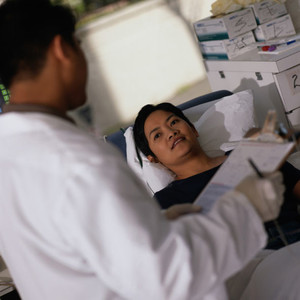According to authors from the National Advisory Unit on Rehabilitation in Rheumatology and the Rheumatology Department of Diakonhjemmet Hospital, Oslo, Norway, key questions when it comes to biosimilars include interchangeability, switching and automatic substitution [1].
In addition, healthcare professional and patient opinions, as well as national and local guidelines, levels of funding and differing approaches to healthcare management can influence access to biosimilars in different Member States of the European Union (EU).
Switching
Switching is defined as a decision by the treating physician to exchange one medicine for another medicine with the same therapeutic intent in patients who are undergoing treatment.
Several studies have examined the impact of using the infliximab biosimilar Remsima in place of the reference product (switching) in patients receiving ongoing treatment for rheumatic diseases or inflammatory bowel disease (IBD). These include the PLANETRA and PLANETRAS open-label extension studies [2], which both found similar efficacy and tolerability compared with Remsima. Other switching studies include the government-funded NOR-SWITCH study, which found biosimilar infliximab to be non-inferior to Remsima [3], and an open-label extension study of etanercept biosimilar Benepali (SB4), which also found that the biosimilar had comparable efficacy, safety and immunogenicity profiles to Enbrel [4].
The authors therefore conclude that ‘there is a growing body of evidence to support switching from an originator to a biosimilar, with the NOR-SWITCH study providing the first randomized data set in this respect’.
Interchangeability
Interchangeability can be defined as the medical practice of changing one medicine for another that is expected to achieve the same clinical effect in a given clinical setting and in any patients on the initiative, or with agreement of the prescriber.
Regarding interchangeability, Uhlig and Goll believe that ‘the regulatory framework in Europe and post-marketing pharmacovigilance commitments undertaken by manufacturers should provide reassurance to prescribers that an approved biosimilar can be administered safely to their patients, and is therefore interchangeable with the reference product’.
Automatic substitution
Substitution is the practice of dispensing one medicine instead of another equivalent and interchangeable medicine at the pharmacy level without consulting the prescriber.
In the European Union (EU), decisions on the interchangeability or substitution of biosimilars and originator biologicals are not made by the European Medicines Agency (EMA), but at the national level. This is despite the fact that biosimilars developed in line with EU requirements are considered by EMA to be therapeutic alternatives to their reference biologicals [5].
Automatic substitution of biosimilars is therefore not routinely practised in Europe, although in some Member States the use of biosimilars has been actively facilitated by national and local tender systems.
Conflict of interest
The authors of the research paper [1] reported conflicts of interest, including having received consulting fees, honoraria and having served as a consultant for pharmaceutical companies including AbbVie, Biogen, Boehringer Ingelheim, Bristol-Myers Squibb, Eli Lilly, MSD, Novartis, Orion Pharma, Pfizer, Roche and UCB.
For full details of the authors’ conflict of interest, see the research paper [1].
Related articles
Barriers to access to biosimilars
Biosimilars for rheumatic diseases
References
1. Uhlig T, Goll GL. Reviewing the evidence for biosimilars: key insights, lessons learned and future horizons. Rheumatology (Oxford). 2017;56(Suppl_4):iv49-iv62.
2. Park W, Yoo DH. Switching from the infliximab reference product to CT-P13 in patients with rheumatoid arthritis or ankylosing spondylitis: results of the PLANETAS and PLANETRA extension studies. Generics and Biosimilars Initiative Journal (GaBI Journal). 2016;5(2):94-5. doi:10.5639/gabij.2016.0502.023
3. GaBI Online - Generics and Biosimilars Initiative. NOR-SWITCH study finds biosimilar infliximab not inferior to originator [www.gabionline.net]. Mol, Belgium: Pro Pharma Communications International; [cited 2017 Oct 6]. Available from: www.gabionline.net/Biosimilars/Research/NOR-SWITCH-study-finds-biosimilar-infliximab-not-inferior-to-originator
4. GaBI Online - Generics and Biosimilars Initiative. Real world switching data for etanercept biosimilar Benepali [www.gabionline.net]. Mol, Belgium: Pro Pharma Communications International; [cited 2017 Oct 6]. Available from: www.gabionline.net/Biosimilars/Research/Real-world-switching-data-for-etanercept-biosimilar-Benepali
5. GaBI Online - Generics and Biosimilars Initiative. Biosimilar substitution in Europe [www.gabionline.net]. Mol, Belgium: Pro Pharma Communications International; [cited 2017 Oct 6]. Available from: www.gabionline.net/Reports/Biosimilar-substitution-in-Europe
Permission granted to reproduce for personal and non-commercial use only. All other reproduction, copy or reprinting of all or part of any ‘Content’ found on this website is strictly prohibited without the prior consent of the publisher. Contact the publisher to obtain permission before redistributing.
Copyright – Unless otherwise stated all contents of this website are © 2017 Pro Pharma Communications International. All Rights Reserved.








 0
0











Post your comment